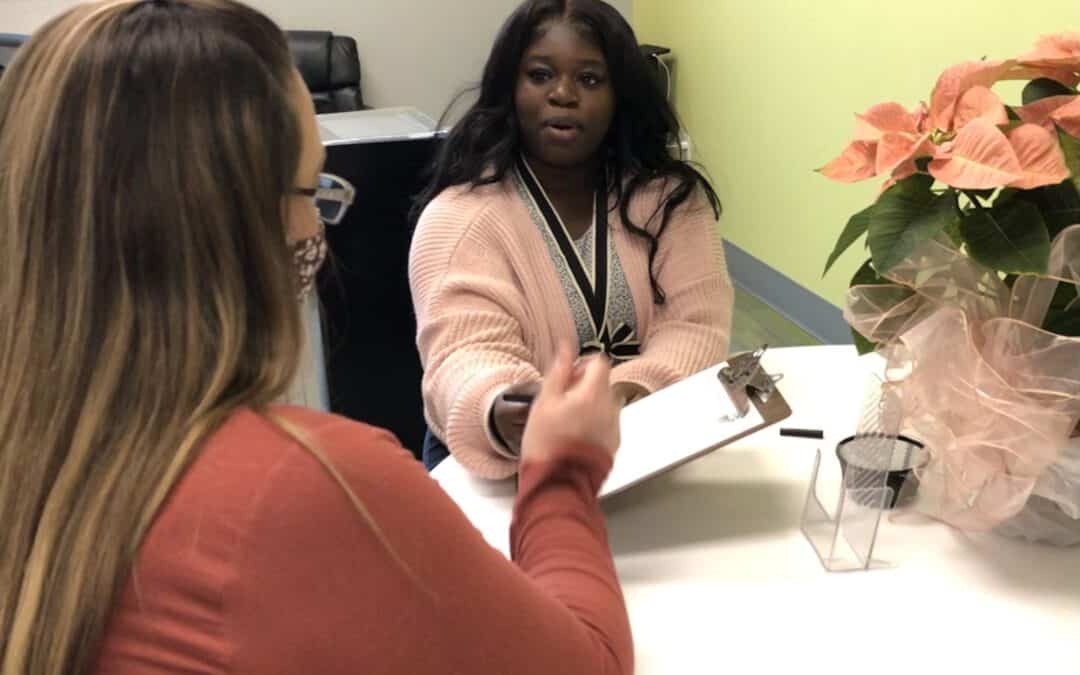The BOBC2 Collaborative (Bringing Our Best Care – Bamberg, Orangeburg, Barnwell and Calhoun) is on a mission to bring mental health services into their communities to make it close, convenient and free from stigma.
Over the past several months, the collaborative hosted eight pop-up clinics to provide easily accessible, community-based mental health services for young adults, including suicide and psychiatrist inpatient prevention and psychiatric care. The clinics were held in the public libraries in Orangeburg, Bamberg and Barnwell counties, and at the John Ford Community Center in Calhoun County.
“We realize it takes a lot of bravery to seek services,” said Dee Ward Robinson, deputy director of the Tri-County Commission on Alcohol and Drug Abuse. “Nobody needs to know why they’re coming here, to the library. That was really important to us to pick a centrally located, stigma-free location.”
When walk-in clients arrive, they complete a survey to indicate the top three issues that are presenting a challenge in their life. They are then matched with the professional best suited to address those issues. The clinics have been staffed by psychologists, social workers, nurses, domestic violence advocates, substance use professionals, and financial counselors.
After a brief counseling session, the client leaves with a plan for next steps and information on additional resources they can access.
While the professionals have all given their time on a volunteer basis, the clinics have also been an opportunity for them to receive continuing education and to network with each other in order to better serve their communities.
“The conversations we have had as providers together have been so rich and so important in influencing our own thinking,” said Doris Páez, a psychologist with Regional Medical Center.
The eight pop-up clinics were a pilot project that grew out of conversations related to the work of the Rural Communities Opioid Response Program (RCORP), a grant received by the SC Office of Rural Health to address behavioral health and substance use in rural communities.
The BOBC2 Collaborative hopes to expand upon the pop-up clinic concept in 2022. They are considering new partnerships to be able to offer clinics at additional venues, such as detention centers, college campuses or parenting programs.
“Change can be made when partners come together, and that’s what has happened here,” said Jessica Seel, director of behavioral health initiatives for the SC Office of Rural Health. “We’re working together to address a gap in behavioral health services for young adults, and in the end, we’re making our communities more resilient by reducing the stigma related to mental health care.”

